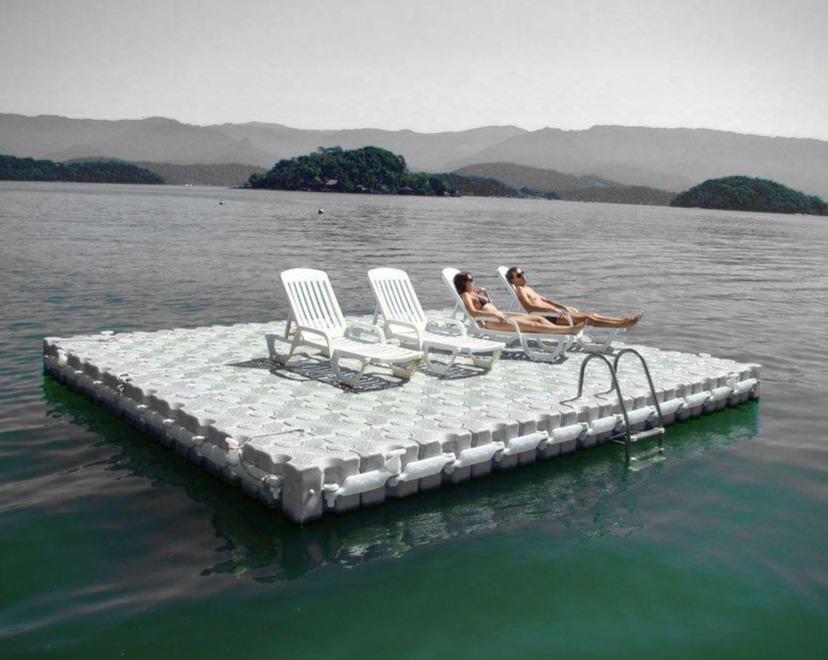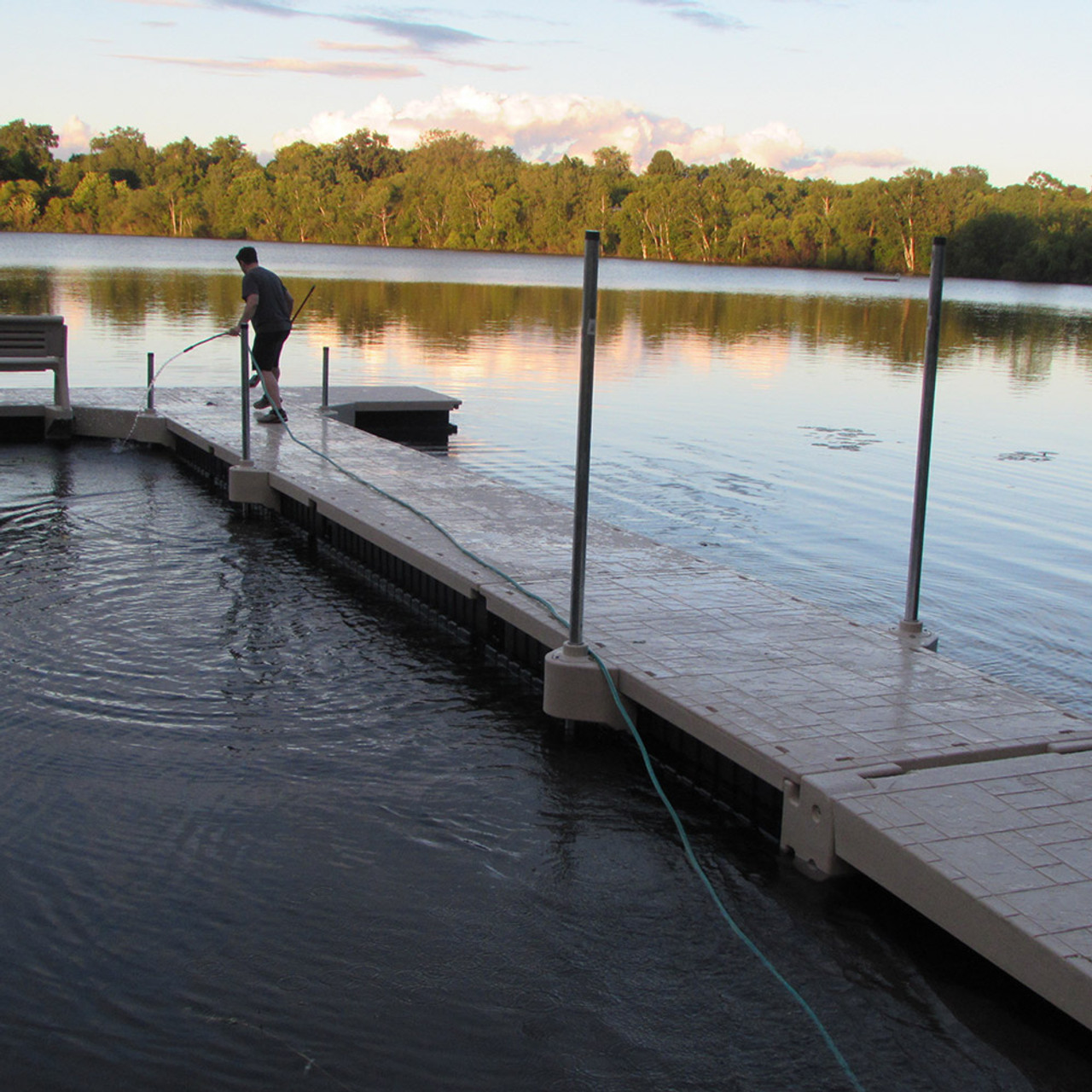The Significance of Quality in Floating Dock Builder Selection for Lasting Docks
The Significance of Quality in Floating Dock Builder Selection for Lasting Docks
Blog Article
The Ultimate Guide to Choosing the most effective Floating Docks
Selecting the ideal floating dock needs a detailed understanding of various components that influence both efficiency and long life. Variables such as dock kinds, products, and important functions substantially affect your decision-making process.
Understanding Floating Dock Kind
When selecting a floating dock, it is necessary to understand the different types readily available, as each serves distinct purposes and applications. Floating docks largely fall under 3 groups: modular, stationary, and pontoon docks.
Modular docks are composed of individual areas that can be easily set up or reconfigured, making them perfect for altering water levels and varied usages, such as recreational tasks or industrial operations. Their versatility enables personalization based upon details demands.

Pontoon docks are characterized by their buoyant framework, often made up of several pontoons that give security and assistance. They are particularly fit for larger vessels and are commonly utilized in marinas or for beachfront homes. Recognizing these types help in selecting one of the most proper floating dock to satisfy specific requirements, making sure optimal capability and safety.
Trick Materials for Longevity
Picking the appropriate materials for floating docks considerably effects their longevity and longevity. One of the most usual products consist of wood, plastic, metal, and composite materials, each offering distinctive advantages and limitations.
Timber, typically preferred for its aesthetic allure, requires routine maintenance to stand up to dampness and degeneration. Pressure-treated lumber can boost resistance to rot, but it may still be susceptible to bugs and weathering.

Plastic docks, made of high-density polyethylene (HDPE), are resistant to deterioration, UV radiation, and influence, making them a popular selection for seaside settings. Their lightweight nature likewise facilitates very easy setup and relocation.
Metal docks, normally created from aluminum or galvanized steel, give phenomenal stamina and toughness. They are resistant to deterioration, especially when treated, yet might call for added insulation to stop heat build-up in warm environments.
Composite materials, incorporating timber fibers and plastics, deliver the benefits of both timber and plastic, resisting moisture and fading while calling for marginal maintenance. - floating docks
Inevitably, the selection of products must line up with environmental problems, intended use, and upkeep preferences to ensure the floating dock continues to be functional and aesthetically pleasing with time.
Important Attributes to Consider
While the choice of products is important, considering crucial attributes for floating docks is similarly vital to make sure ideal efficiency and user fulfillment. One crucial attribute to examine is the dock's buoyancy capacity, which identifies just how much weight it can sustain without submerging. floating docks. This is vital for suiting watercrafts, individual watercraft, and even recreational activities
Furthermore, transportability is a considerable consideration. Depending on your demands, you may want a dock that is very easy to disassemble and move, especially if you prepare to move it seasonally. Stability is one more essential feature; a properly designed floating dock must minimize activity created by wind and water currents, offering a safe system for users.
Safety functions, such as non-slip surface areas and rounded edges, are additionally critical to stop accidents, specifically in wet conditions. Think about the accessibility of devices, such as bumpers, ladders, and cleats, which can improve the functionality of your dock.
Setup and Upkeep Tips
Establishing and keeping a floating dock requires careful planning and attention to detail to guarantee its durability and optimal efficiency. Begin by choosing a proper location that minimizes exposure to strong currents and waves, which can create damage. Ensure that the water deepness is sufficient for the dock's height which it is anchored securely to stop motion.
During setup, adhere to the manufacturer's guidelines closely, as inappropriate assembly can endanger stability. Use top quality products resistant to rust, such as light weight aluminum or treated timber, to boost toughness. Frequently evaluate all elements, consisting of drifts, ports, and securing systems, for signs of read this article damage or wear.
If your dock utilizes flotation protection tools, guarantee they stay undamaged and cost-free from punctures. By adhering to these setup and upkeep ideas, you can take pleasure in a reliable and useful floating dock for years to come.
Budgeting for Your Dock
Budgeting for floating dock builder your dock is a vital action that can substantially impact your general contentment and financial investment in a waterfront home. Developing a clear budget assists you navigate the different choices available and ensures you make informed decisions that line up with your financial capabilities.
Begin by determining the dimension and design of the dock you call for, as these factors will substantially influence the cost. Floating docks can vary significantly in price, depending upon products, buoyancy, and features like ramps and devices. Study different manufacturers and distributors to contrast costs and understand the marketplace value.
Along with initial expenses, consider recurring expenses such as upkeep, insurance coverage, and potential repair services. Allocate funds for these reoccuring costs to stay clear of surprises down the line. It's likewise sensible to allocate any kind of required authorizations or assessments, which may be needed by local policies.
Last but not least, keep in mind the possible roi. A tactical dock can boost your home's worth and appeal, supplying a favorable financial impact in the lengthy term. By budgeting effectively, you can make sure that your dock fulfills your needs without endangering your financial stability.
Final Thought
In final thought, selecting the optimal floating dock necessitates a comprehensive evaluation of various variables, including dock types, materials, important features, and installment procedures. Careful consideration Look At This of budgetary restraints will further ensure an audio financial investment.

While the choice of materials is crucial, thinking about necessary attributes for floating docks is similarly crucial to ensure ideal performance and individual satisfaction.Setting up and preserving a drifting dock requires cautious preparation and interest to detail to guarantee its durability and optimum efficiency. Floating docks can differ significantly in price, depending on products, buoyancy, and features like accessories and ramps.In conclusion, choosing the excellent floating dock necessitates a detailed evaluation of numerous variables, including dock types, materials, important functions, and installation processes.
Report this page